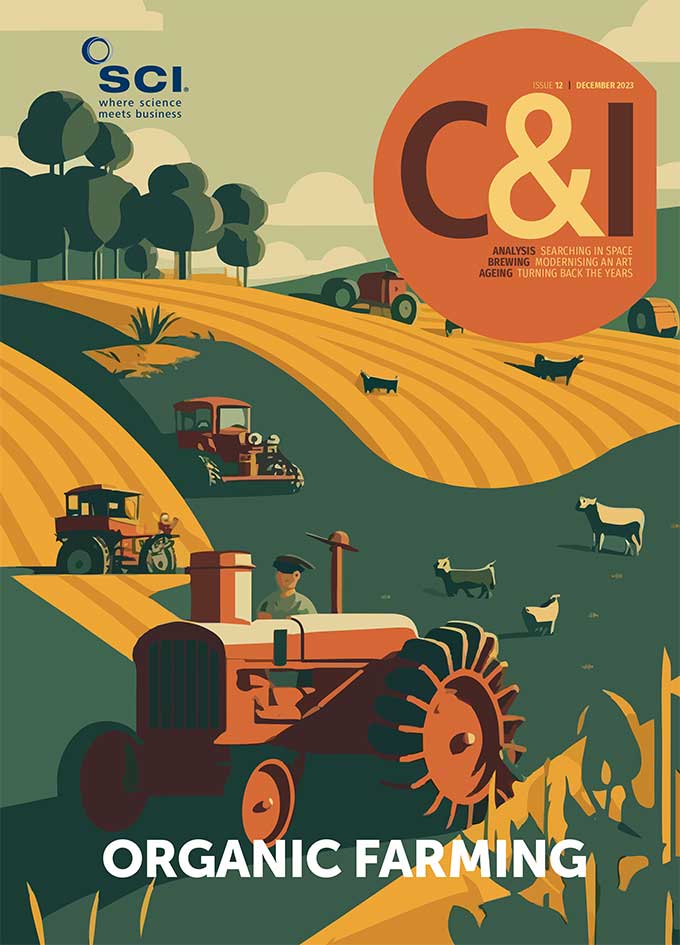BY HANS DE BACKER, BIOSYNTH | 20 DECEMBER 2023
 The UK life sciences sector employs over 280,000 people, and according to Chancellor Jeremy Hunt, the industry makes £94bn for the UK each year[1].
The UK life sciences sector employs over 280,000 people, and according to Chancellor Jeremy Hunt, the industry makes £94bn for the UK each year[1].
Consequently, although Biosynth is an international company with headquarters in Switzerland, we have expanded our UK operation significantly in 2023 to over 150 employees. We have added UK-based peptide capability with the acquisition of both Cambridge Research Biochemicals (Billingham) and the GMP site of Pepceuticals (Leicester), along with our long-standing chemistry site in Compton, Berkshire. For us, this makes sense both in terms of what services and capabilities we are adding in the UK but also where they are located, moving outside the UK’s ‘golden triangle’ into the ‘northern arc’ of life sciences[2]. Both of these areas have seen significant investment, with Pfizer paying an estimated £420m for ReViral in the northeast, and AbbVie buying Oxford-based DJS Antibodies for £229m[3].
We respect the UK’s historic strength in life science innovation and manufacturing and see its dynamic supply chain being one of the major factors driving innovation in the sector. The country is home to some of the world’s best universities and therefore a natural hub for talented graduates. Having access to highly talented PhD, master’s and undergraduate students is a significant boost for the pharmaceutical sector, and for the life sciences sector. Universities are also important – many innovative and successful start-ups are spun out of university research faculties. The UK’s NHS plays another significant role in the broader pharmaceutical supply chain.
Despite this history, the Medicines Manufacturing Industry Partnership (MMIP), which represents the voice of medicines manufacturers in the UK, has found that there has been a significant loss of traditional medicines manufacturing capacity over the last 25 years. The MMIP reports 7000 jobs lost and a fall in production volumes of 29% since 2009. It has also seen the global proportion of capital investment fall dramatically in the last few years[4].
Brexit has had a significant impact on the UK STEM industry. Although the UK’s association with Horizon Europe, the €95.5bn EU research and innovation programme, was negotiated as part of the 2020 Brexit withdrawal agreement, disputes delayed the Commission signing off on the deal. This cut off access for UK scientists from a major source of grants for a time. Fortunately, the UK has recently agreed a bespoke re-association with Horizon Europe, which should provide British scientists with some certainty. It will also enable cooperation with other non-EU countries like Norway, New Zealand, Israel, and other countries that are part of, or joining the programme[5].
In the wake of the Covid pandemic, and with a focus again on vaccines, diagnostics and the development of new therapeutics, the UK Government unveiled plans and funds to address future healthcare challenges. This approach is one that is echoed across the globe as governments ensure readiness for both future and ongoing healthcare needs.
Released in 2021 in the wake of the pandemic response, the UK Government’s ‘Life Sciences Vision’, focuses on preventing, diagnosing, monitoring and treating disease early, using innovative clinical trials to develop breakthrough products and treatments quickly to help save lives, and accelerate the development and adoption of new drugs, diagnostics, medical technology and digital tools[6]. This is paired with the Chancellor’s £650m life sciences growth package Life Sci for Growth, unveiled in May 2023[1], which brought together 10 different policies. Overall, this includes £121m to improve commercial clinical trials to bring new medicines to patients faster, and up to £48m of new money for scientific innovation to prepare for any future health emergencies.
For Biosynth, it makes sense that peptide discovery and production is at the heart of this new focus, and we see that from our customers. The global peptide therapeutics market was valued at $33.3bn in 2021 and is projected to reach $64.3bn by 2031, growing at a CAGR of 6.8%[7]. This market is driven by the rising incidence of cancer, as well as metabolic disorders, cardiovascular, and infectious diseases. We expect to continue to witness significant growth due to both local and global investment in R&D programmes and the assistance given to development, trials and the approval of new drug candidates.
While many companies across the UK offer peptide synthesis for research purposes, often with a focus on simple short peptides, there are less than a handful of UK sites for GMP (good manufacturing practice) peptide manufacture. One of the reasons for investment here is the crucial need to serve customers requiring the multikilogram scale synthesis of GMP peptides for clinical trials and commercial supply, ideal for oncology and other disease area programmes.
Further reading
1 UK Government - Chancellor reveals life sciences growth package to fire up economy
2 The Guardian - Investors flock to life science as UK firms break funding record
3 www.soci.org/news/2023/1/biotech-investment-slumps-in-2022-but-uk-innovation-remains-a-magnet-for-global-pharma
4 Bioindustry.org - Fulfilling the potential identified in the Government's Life Sciences Vision - PDF
5 UK Government - UK joins Horizon Europe under a new bespoke deal
6 UK Government - Bold new life sciences vision sets path for UK to build on pandemic response and deliver life changing innovations to patients
7 Allied Market Research - Peptide Therapeutics Market





